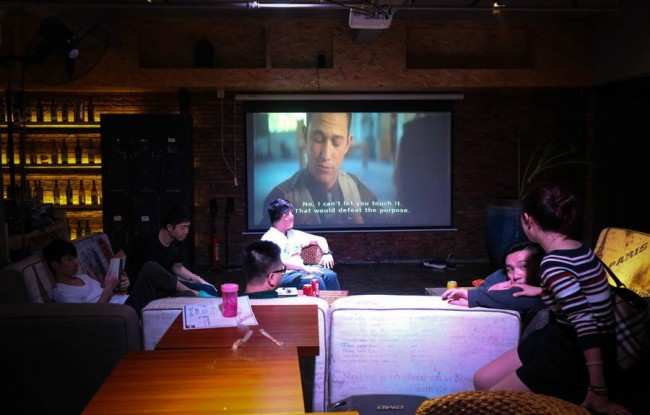






Residential communities specially designed for China's younger generation are popping up in China's big cities, offering a place to live, start a business, and make friends. You+ International Youth Community is considered one of the first companies to offer this type of accommodation service to renters across China.
Graffiti adorns walls around the community, and the rental rooms are all tastefully decorated and equipped with all the trappings of modern life. More than 400 young people live and work at one of the You+ communities in downtown Beijing.
Its founder and chairman Liu Yang has worked and lived in six cities around the country.
"I understand the 'transient' and 'precarious' feeling of living in an unknown city," Liu, 42, said. His own experience inspired him to provide young people with a real "home," and somewhere they could kick-start their career.
Young people do not often communicate with their neighbors since they are busy working so hard, Liu said.
"People are uncomfortable in an unfamiliar environment," he said. "Thus, safety comes in numbers."
"Home means warm, safe, and stable," Liu said. "Our You+ community is grounded in these concepts."
Liu raised 8 million yuan (about $1.24 million) in 2011 and opened his first youth community in Guangzhou in South China's Guangdong province.
"Young people do not necessarily need a very big bedroom, they prefer communal recreational spaces," Liu said. "We assign spaces for cafes, KTV rooms, cinemas, billiards, and gyms."
The maximum age for residents of the community is 35 years old, and no children are allowed. Rent ranges from 1,500 to 6,000 yuan a month.
"Actually residents can save more money by volunteering for the community, as all our facilities are free except beverages and snacks."
The youth communities pride themselves on being a place to live, rather than somewhere to stay. "We are pushing strangers to become acquaintances by living in the community," Liu said. "It's just like neighbors in the village."
The community is also an industrial incubator where private companies could be registered.
Many of Liu's renters start their own business at the community. Some of them are busy day and night. "They do not need to jam into the subway and go to the office to the other side of the city," Liu explained.
Wei Jialin, 26, used to live at the You+ community in 2015. She said that the biggest difference between a private apartment and the youth community is being able to make friends.
"I don't want to sit in front of the computer all day and night," she said. "It's not what young people should be doing."
Wei works on an overseas study program service now. She met her boss and colleagues at the same youth community. "Most are outstanding entrepreneurs who helped my career a lot," Wei said.
Liu Yang believes that his community is safe. "Any unfamiliar face is recognizable," he said. "All the door-entrance buttons are hidden; only members know."
There are around 10 maintenance and communication workers in each You+ community.
One resident had an angina attack. "Many members rushed to his aid after they heard about it on WeChat."
By the time the ambulance arrived, the ill resident was out of danger, thanks to his friends. According to Liu, all the residents are unique and can make their own contribution.
You+ has 16 communities in Beijing, Shanghai, Guangzhou, Shenzhen, Hangzhou, and Fuzhou.
They attracted around 400 million yuan in investment.
Liu saw You+ as just the prelude of youth communities in China. "The supply is still far less than the demand."
Ge Lan, chairman of Mofang Apartments, one of over 1,000 similar youth communities in China, understands that there is huge potential for the market; "China has a floating population of more than 200 million."
The public-house rental sector, including youth communities, is considered by many as an efficient solution for the housing inventory.
Since last year, China has introduced a range of policies encouraging the development of the house rent market.
Credit: China Daily


























